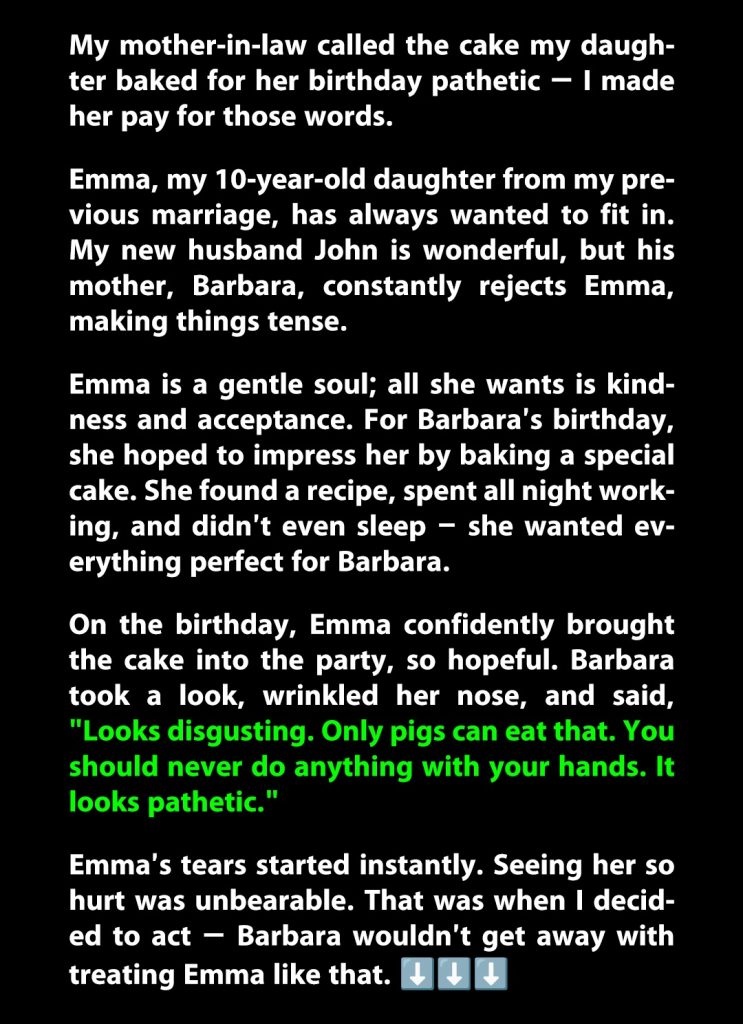Emma, a bright-eyed 10-year-old, had one simple wish: to be accepted by her step-grandmother, Barbara. Despite Barbara’s cold demeanor and history of dismissiveness, Emma held onto hope. For Barbara’s birthday, she poured her heart into baking a cake—mixing, decorating, and staying up all night to make it perfect. It wasn’t just flour and sugar; it was a gesture of love.
When the big day arrived, Emma presented the cake with pride. “Happy Birthday, Grandma Barbara!” she beamed. But Barbara barely glanced at it before sneering, “Looks disgusting. Only pigs would eat that.” Her words sliced through Emma’s joy like a knife. The little girl fled the room in tears, her spirit crushed.
Sarah, Emma’s mother, was livid. She had endured Barbara’s icy treatment for years, but this was different. This wasn’t just rudeness—it was cruelty aimed at a child. Sarah comforted Emma, assuring her the cake was beautiful and her effort deeply appreciated. But inside, she knew Barbara needed to learn a lesson.
Instead of lashing out, Sarah chose a quieter, sharper form of justice. She began subtly excluding Barbara from family decisions and events. When Barbara asked why she wasn’t consulted, Sarah calmly replied, “We’re just being honest—like you were with Emma.” She made sure Barbara felt the sting of her own philosophy: that honesty without kindness is just cruelty.
John, Sarah’s husband and Barbara’s son, supported his wife. He saw the damage his mother had done and stood by Sarah’s decision to protect Emma. Over time, Barbara found herself increasingly isolated—not out of spite, but consequence. The family didn’t shut her out; she shut herself out with her own behavior.
Eventually, Barbara tried to apologize, but Sarah didn’t let her off easily. “You don’t get to break a child’s heart and expect forgiveness without earning it,” she said. Barbara had to rebuild trust, starting with Emma.
The story ends not with revenge, but with resolution. Emma learned that love should be met with love, and Sarah showed that standing up for your child doesn’t require shouting—it requires strength, clarity, and conviction.



